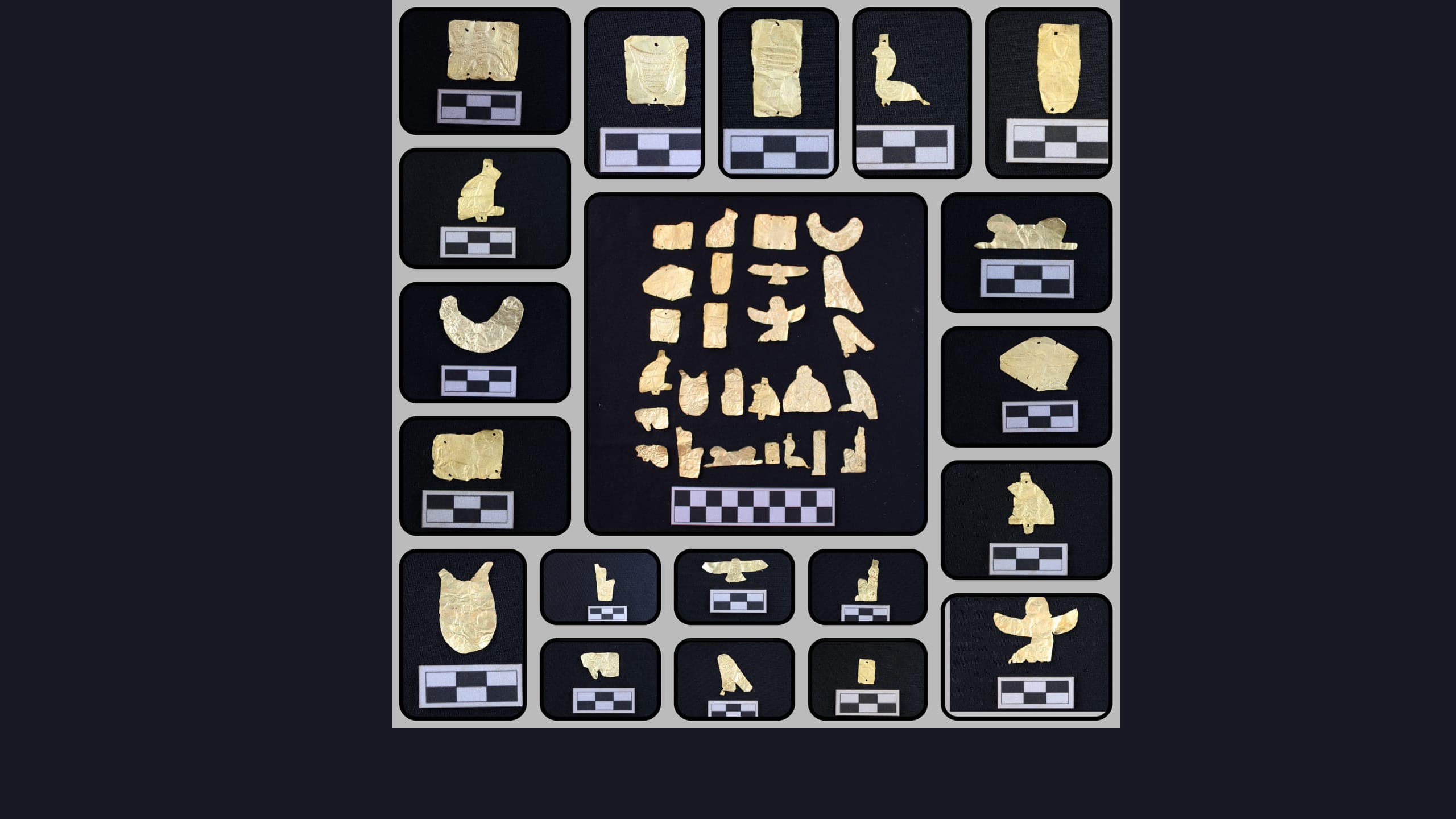Egyptian Archaeologists Discover Artifacts From Final Dynasty in Nile Delta Tombs
Archaeologists in Egypt have uncovered a significant collection of artifacts from the country’s final dynasty within 63 tombs located in the Nile Delta, according to an official from the antiquities authority. Neveine el-Arif, spokeswoman for the Ministry of Tourism and Antiquities, announced on Monday that the finds include gold jewelry and other items from Egypt’s Late and Ptolemaic periods, some of which may eventually be exhibited in a national museum.
The discovery was made by an Egyptian archaeological team from the Supreme Council of Antiquities at the Tell al-Deir necropolis in Damietta, a city in the northern part of the country. The tombs, constructed from mud bricks, contained a variety of artifacts, including statues, funerary amulets, and a pottery vessel holding 38 bronze coins from the Ptolemaic period.
Give the gift of hope
We practice what we preach:
accurate, fearless journalism. But we can't do it alone.
- On the ground in Gaza, Syria, Israel, Egypt, Pakistan, and more
- Our program trained more than 100 journalists
- Calling out fake news and reporting real facts
- On the ground in Gaza, Syria, Israel, Egypt, Pakistan, and more
- Our program trained more than 100 journalists
- Calling out fake news and reporting real facts
Join us.
Support The Media Line. Save democracy.


The Ptolemaic dynasty, which began in 305 BCE after Alexander the Great’s conquest of Egypt, was the last Egyptian dynasty before the region became part of the Roman Empire. The dynasty ended with Cleopatra, the last ruler of Ptolemaic Egypt.
In 2018, Egypt showcased Ptolemaic artifacts for the first time at the Egyptian Museum in Cairo, featuring around 300 items from this historical period.

